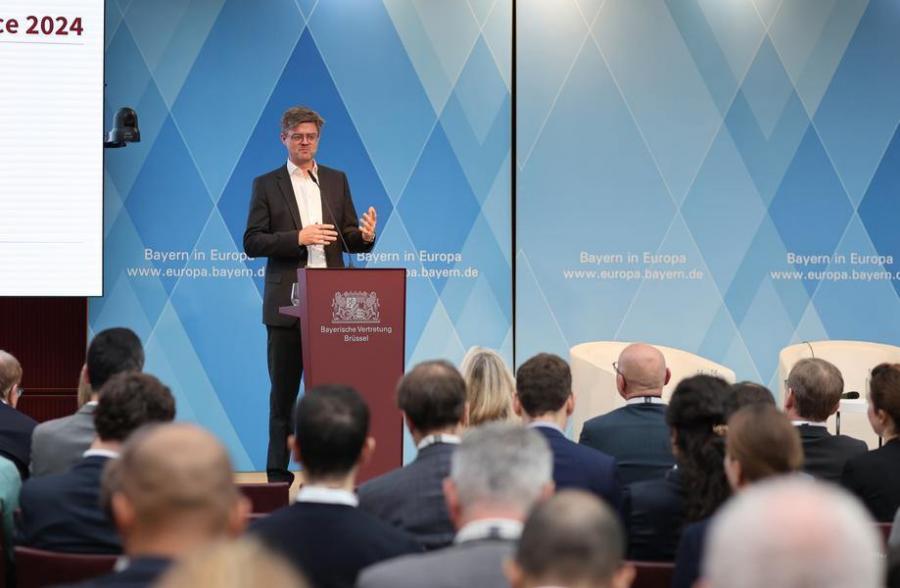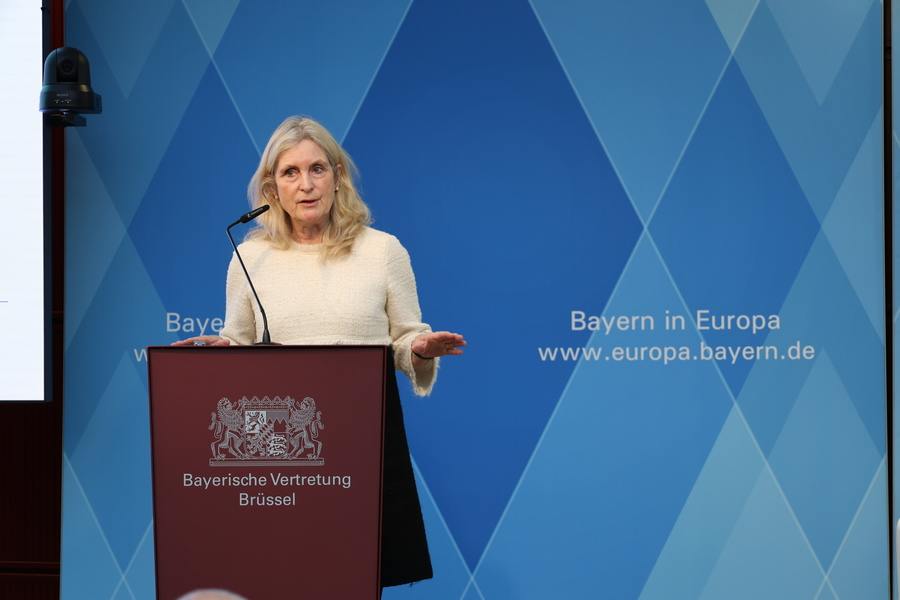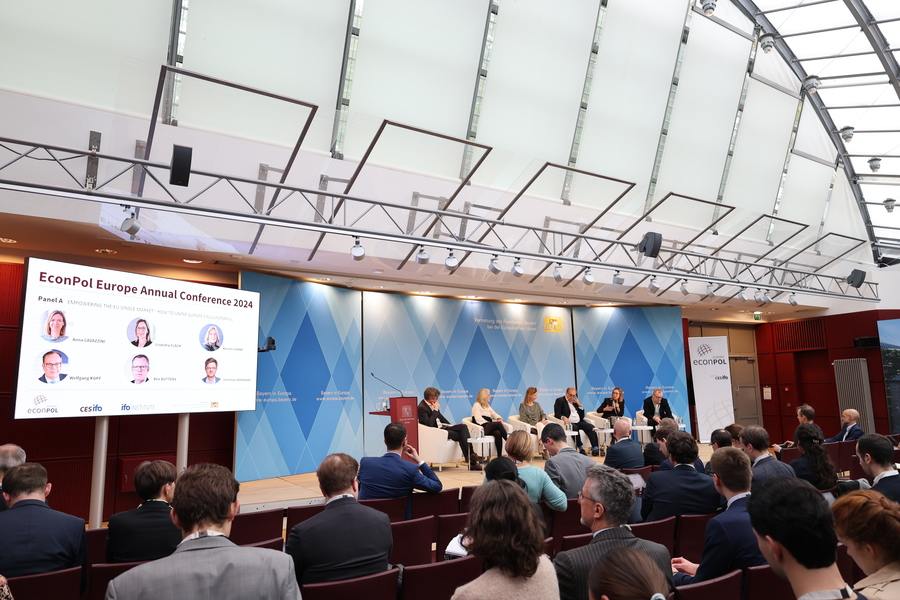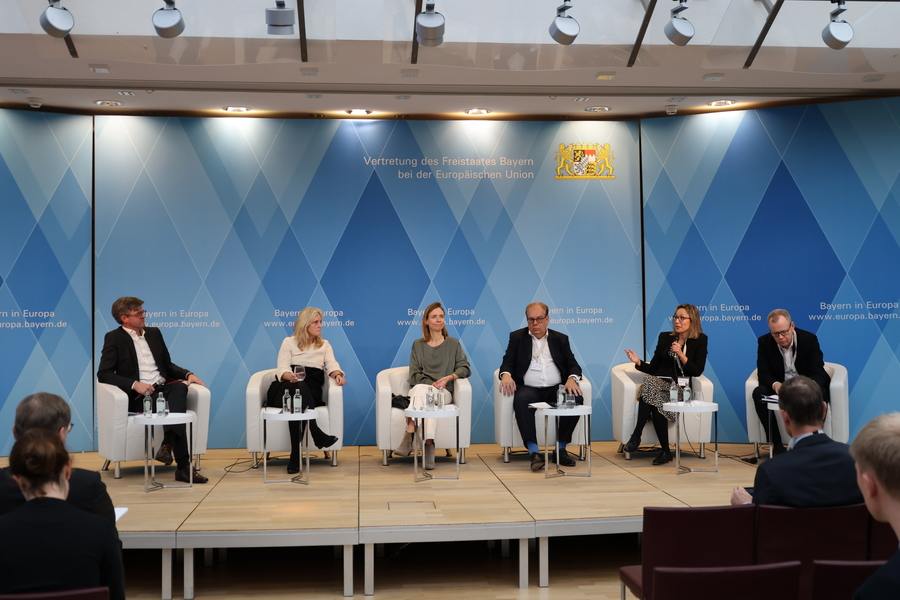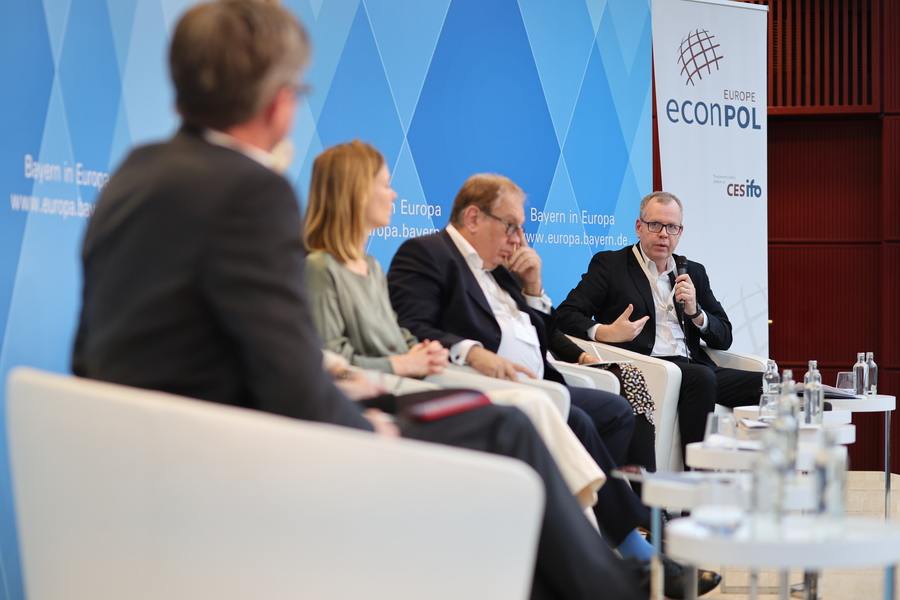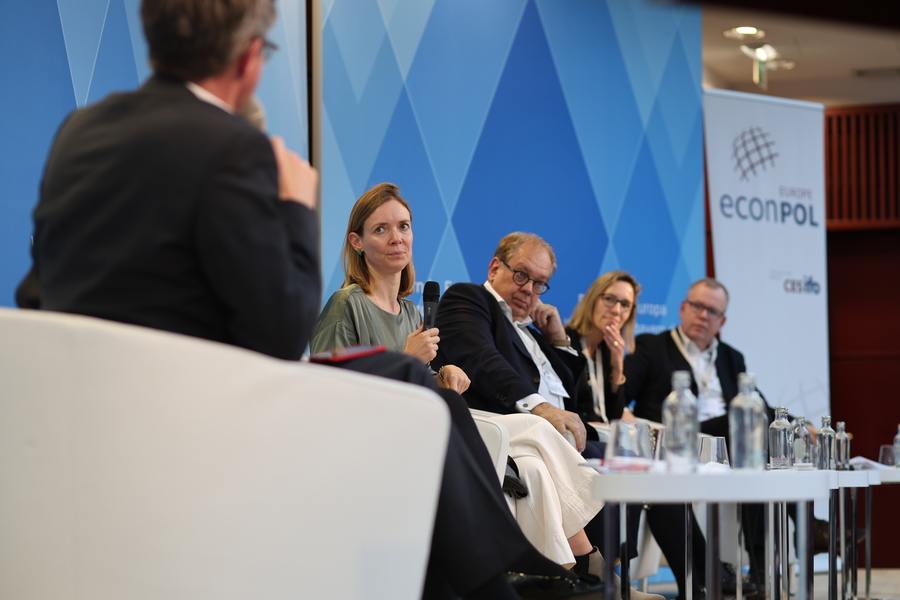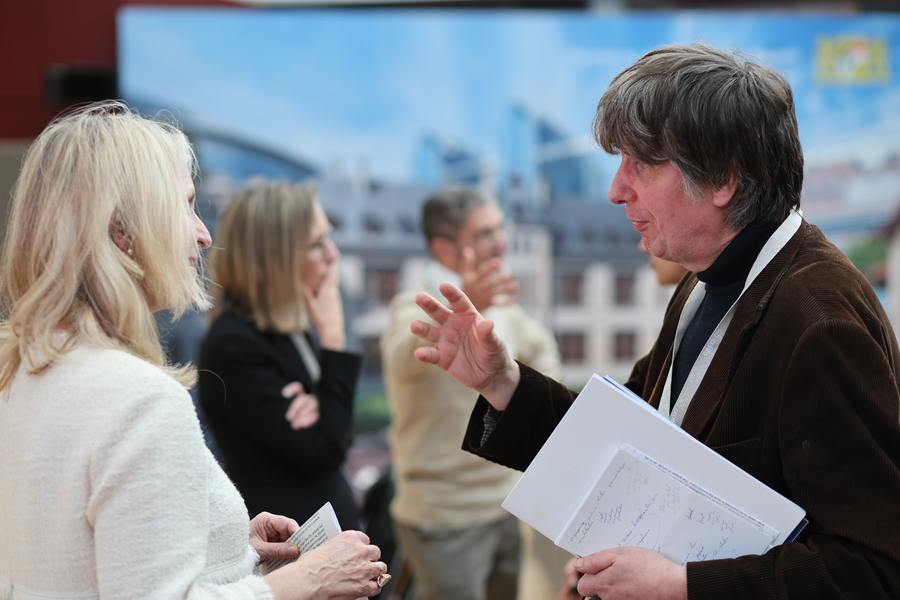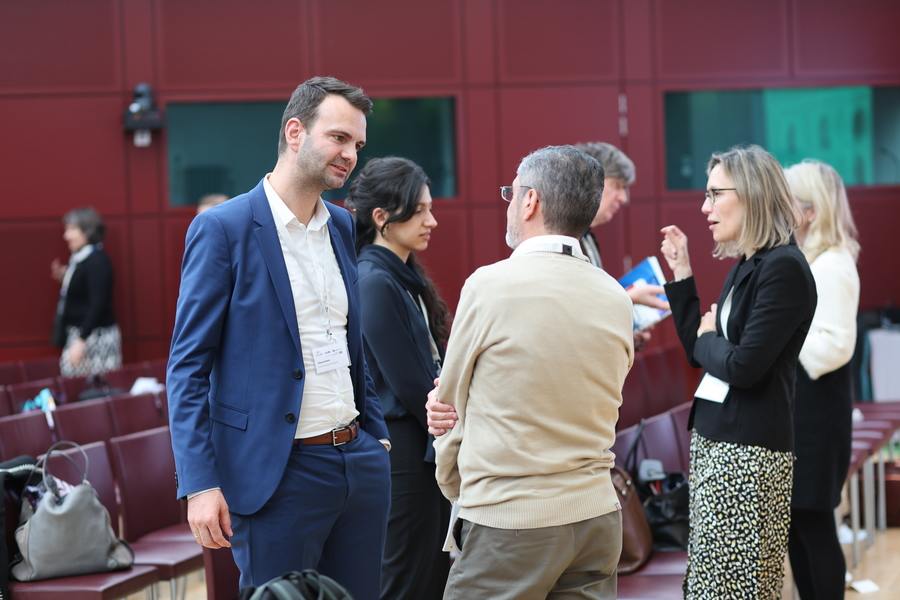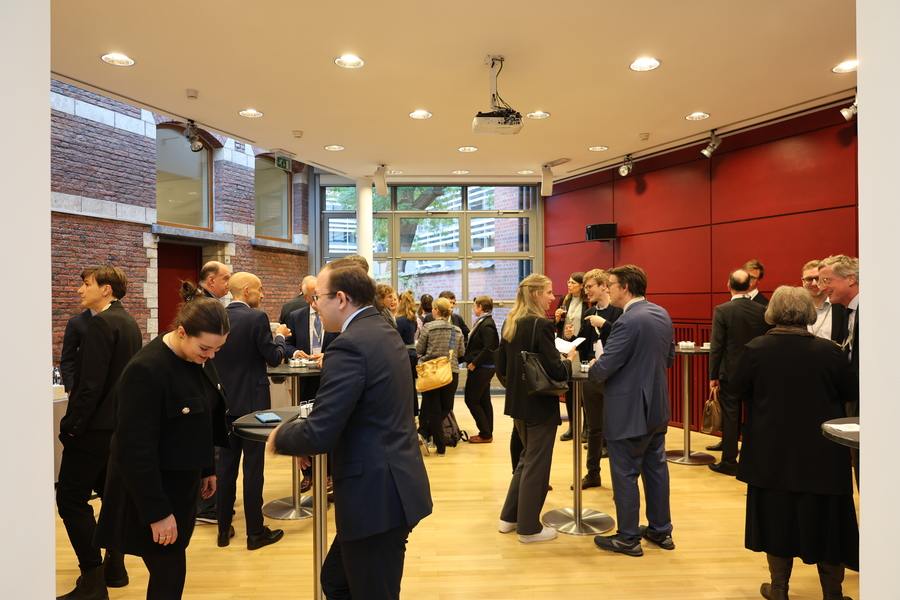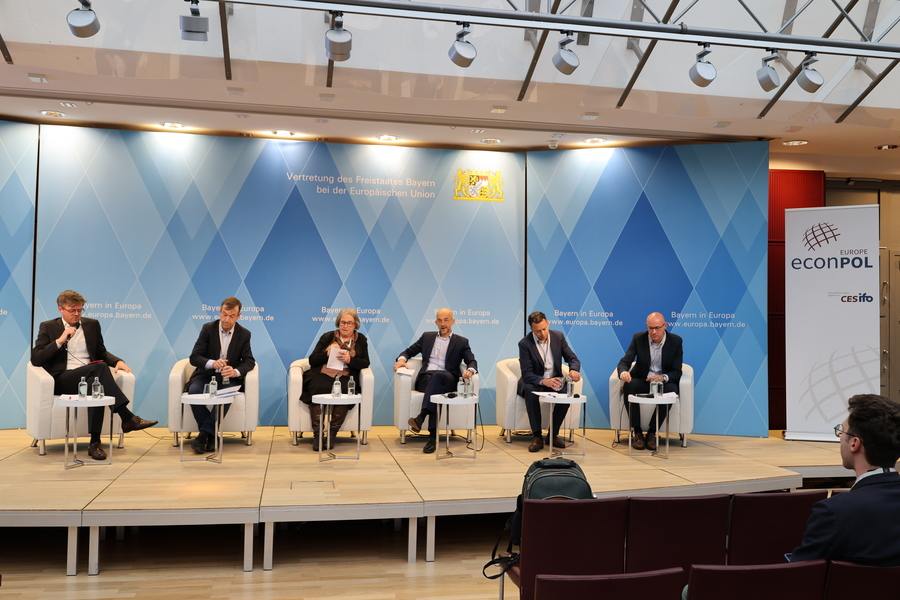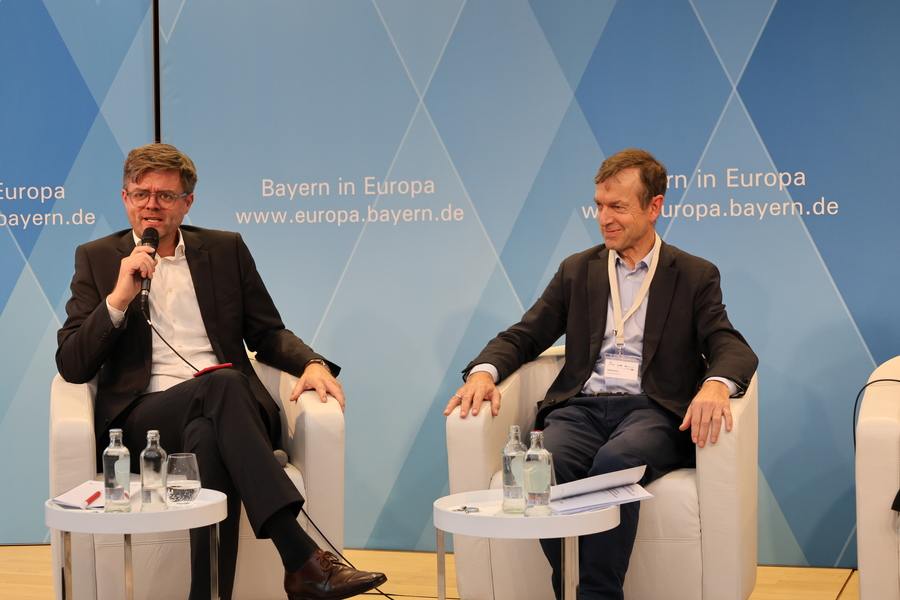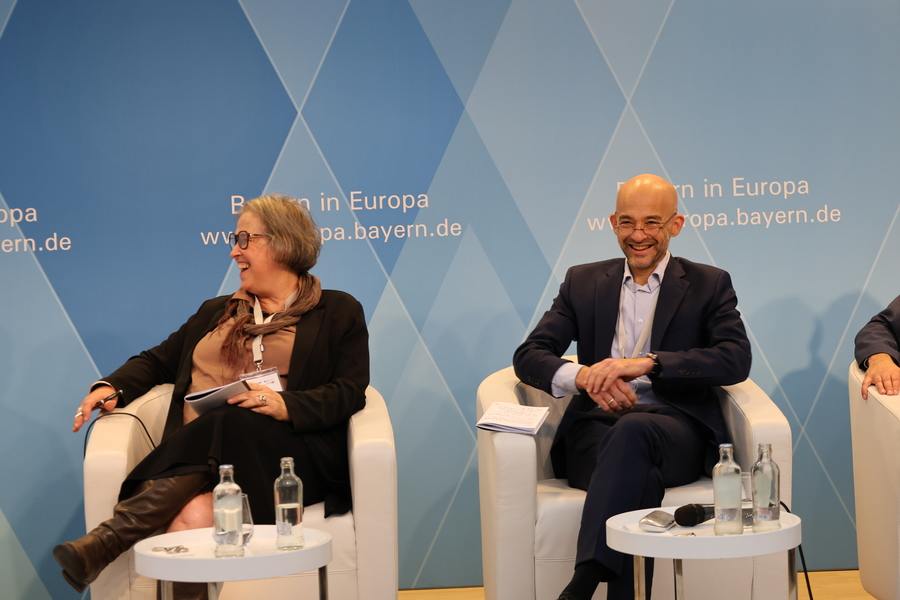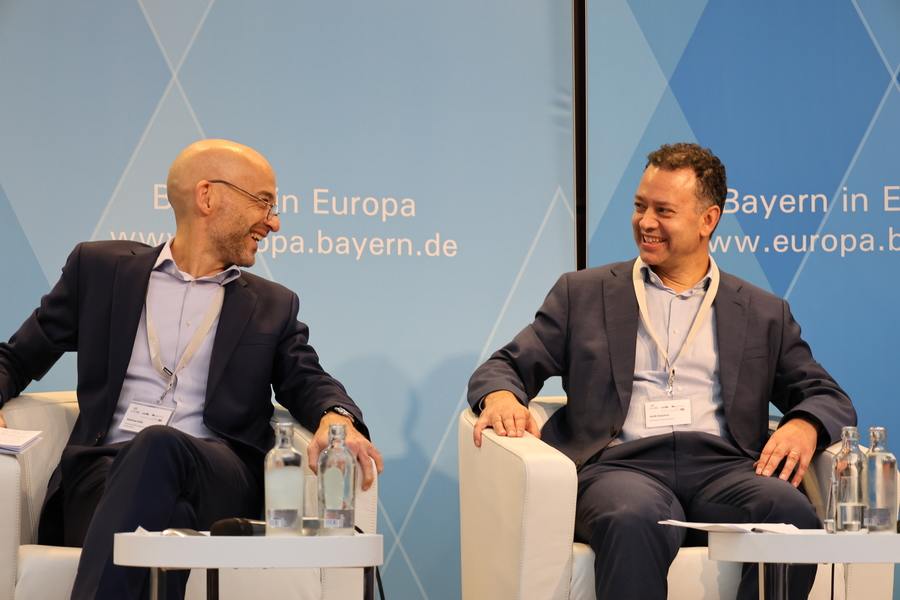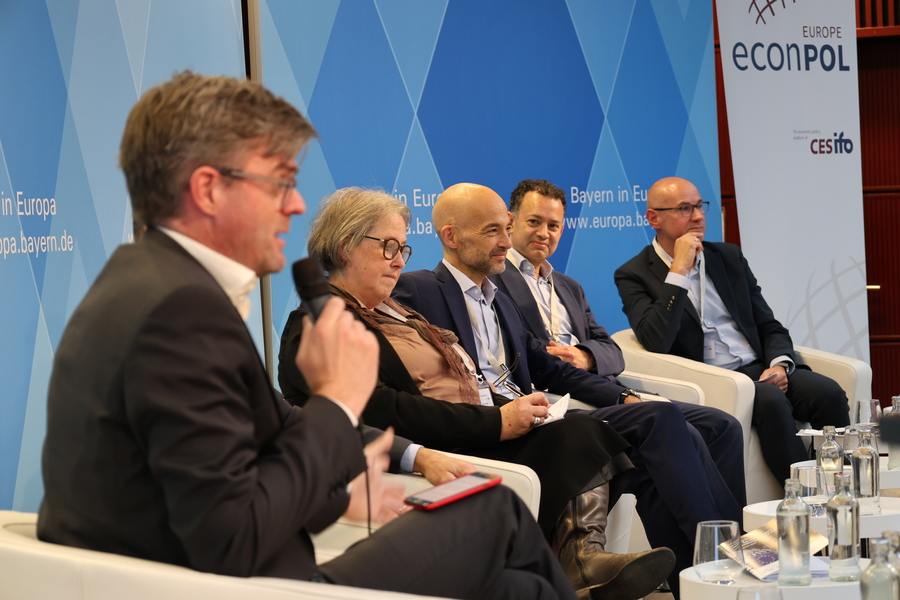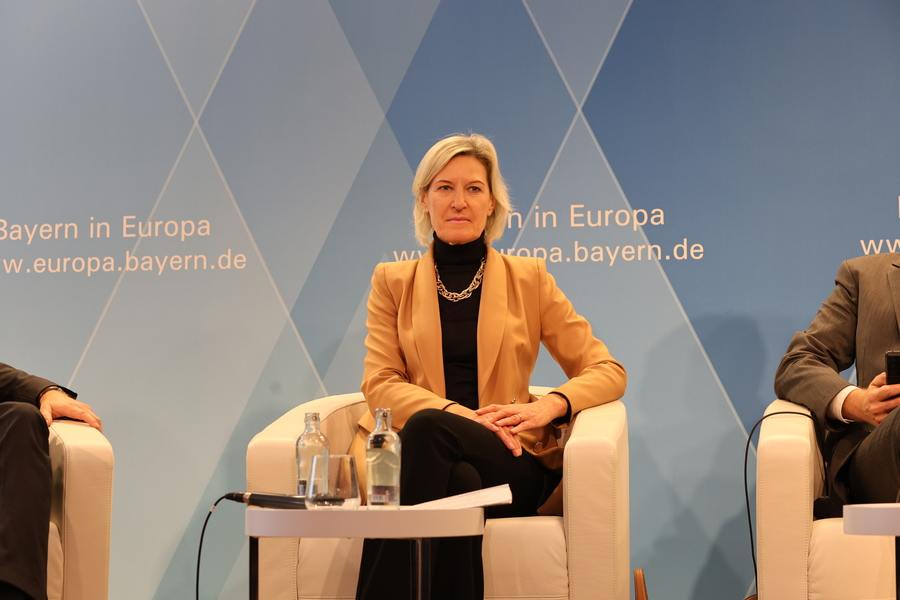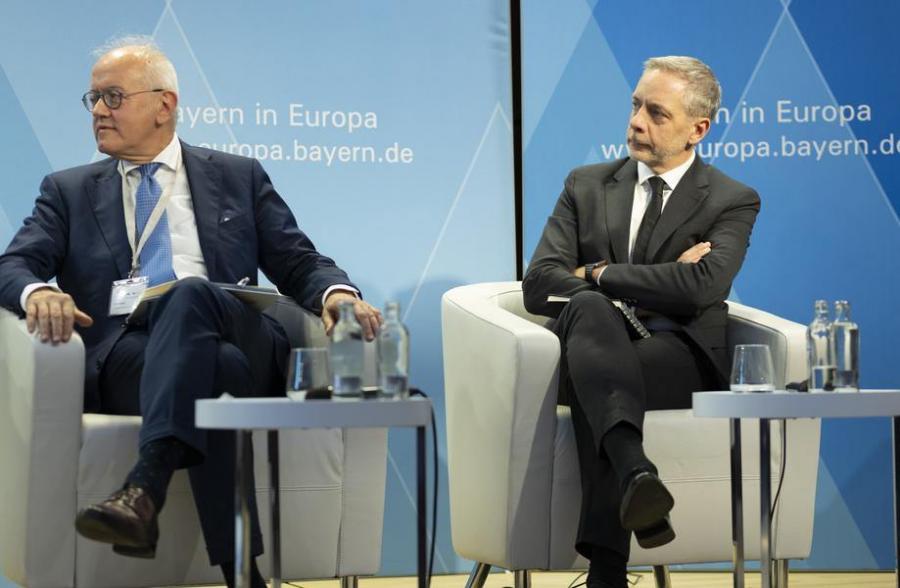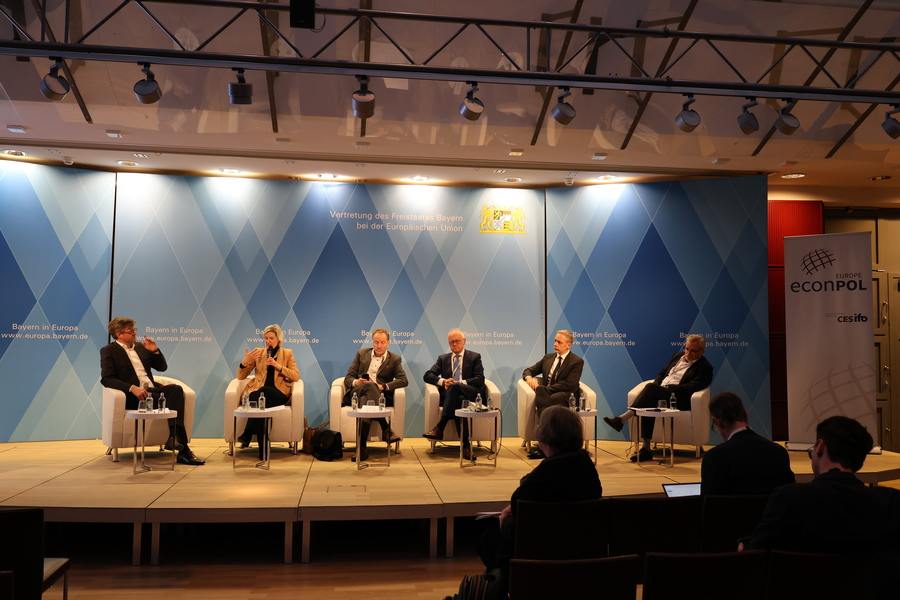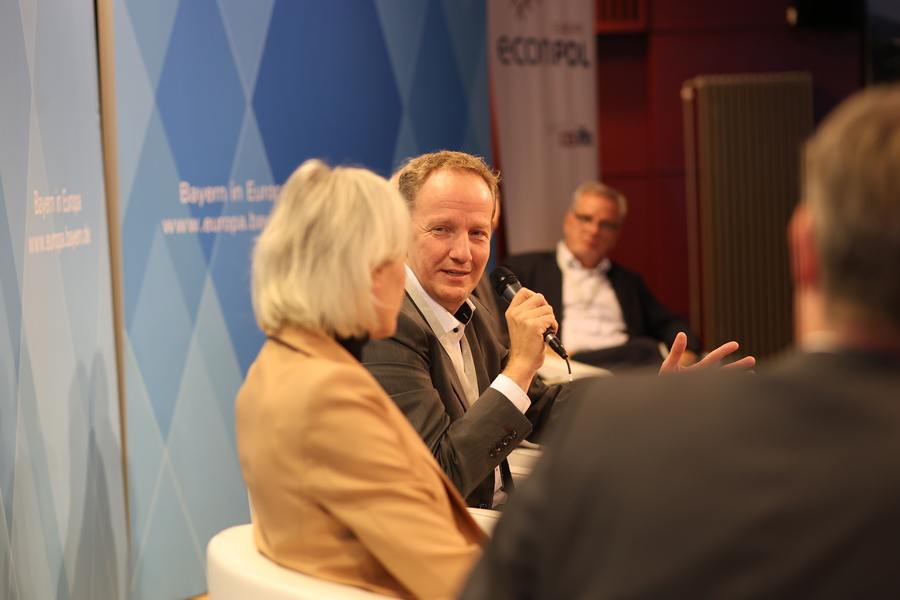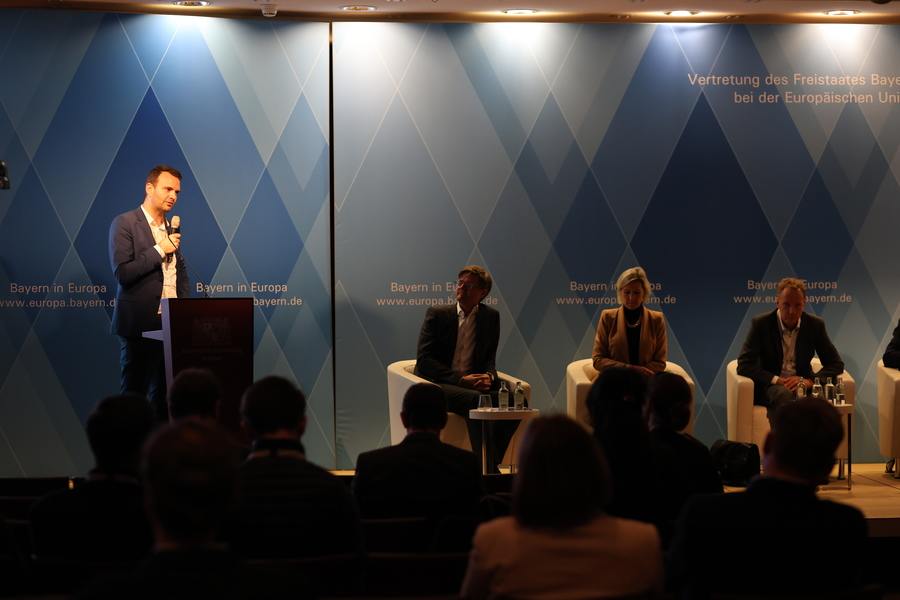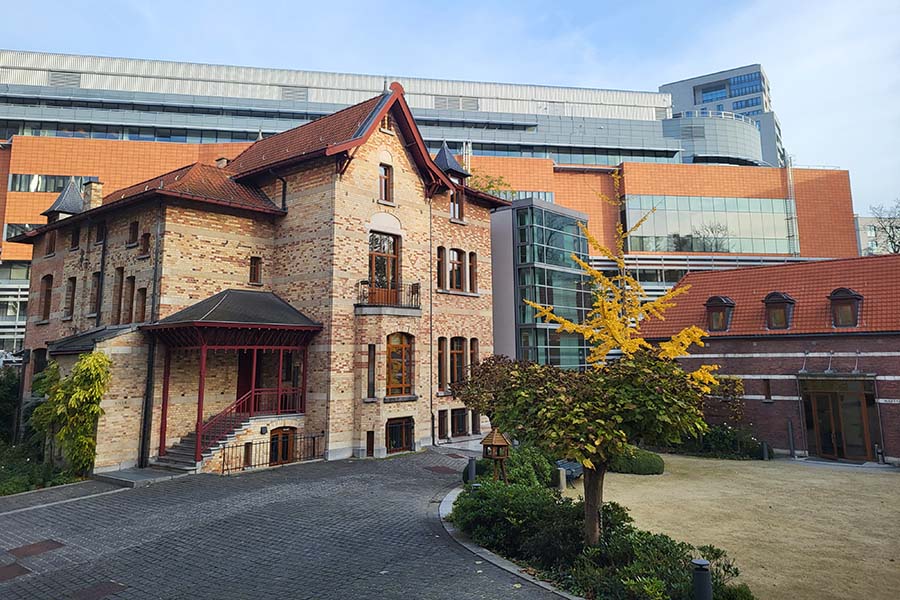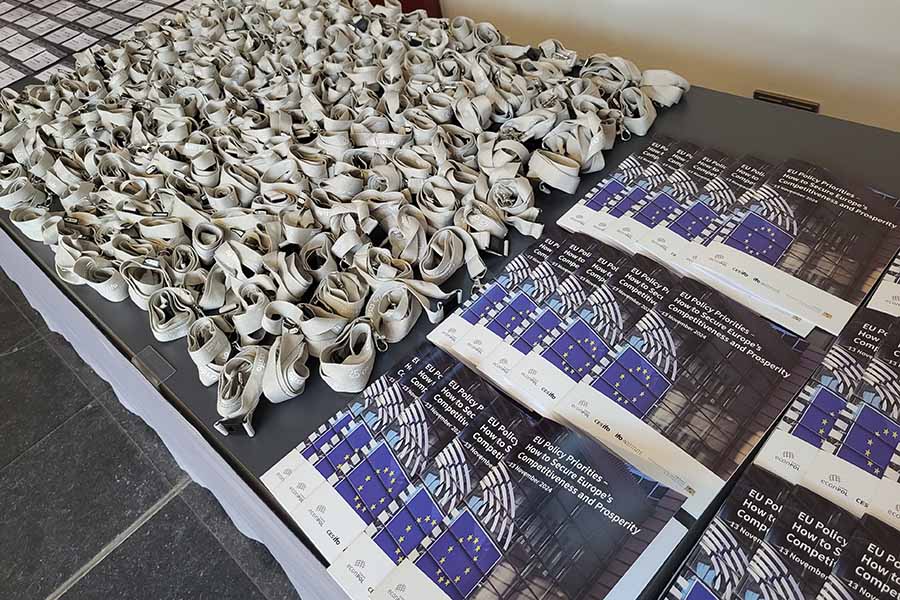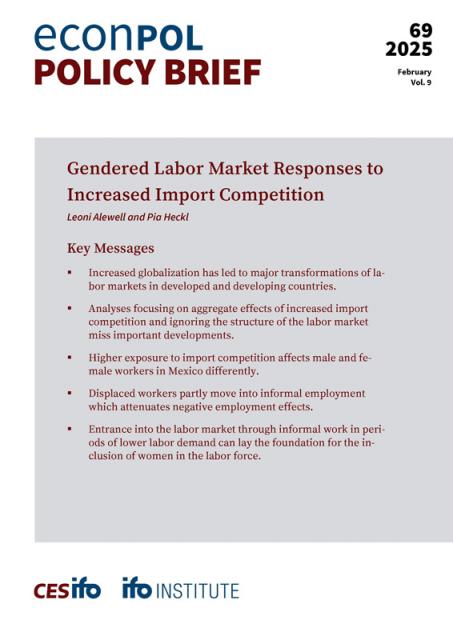EU Policy Priorities - How to Secure Europe's Competitiveness and Prosperity
EconPol Annual Conference 2024
-
Representation of the Free State of Bavaria to the EU, Rue Wiertz 77, Brussels
Conference Videos: Scroll down to the very bottom of the page
The new EU legislature is haunted by resurgent worries — Trump rebooted and heightened geopolitical and trade tensions. Talk has shifted from outsourcing security to the US to achieving “strategic autonomy”; from outsourcing export-led growth to China to “de-risking”; and from outsourcing energy needs to Russia to anywhere but. And then there is climate change and the war next door. How can Europe secure its competitiveness and prosperity in this new environment? Join us at the #EconPol2024 as we unpack the key issues and chart a course to navigate the potentially thorny years to come.
Key topics for discussion include:
- Identifying where the EU adds tangible value to its member states has always been crucial, but increasingly so in such a dynamically changing world. From fostering economic growth to promoting peace and stability, keeping sight of the EU's value underpinnings is as essential as addressing areas for improvement in a timely manner.
- Balancing such competing priorities as climate change, enhanced security, and competitiveness is not trivial: it calls for innovative policy solutions to honor each without jeopardizing Europe's prosperity.
- Innovation policy reform and assessing the transformative potential of emerging developments will strengthen the resilience of Europe's competitiveness in the decades to come.
- Unlocking the full potential of the EU's internal market and achieving deeper integration will be major drivers of economic growth and stability.
- The EU's policy decisions have far-reaching effects beyond its borders. Deeper understanding of the potential impact of EU policies on other countries will be indispensable to secure Europe's role in the global economy.
The 2024 Annual EconPol Europe Conference will address these and many other issues, drawing lessons from the responses to recent and ongoing crises, and examining the implications for fiscal and economic policy with a top lineup of EU officials, business leaders, and cutting-edge researchers.

11.30 a.m. Registration
12.00 a.m. Light lunch
13.00 p.m. Welcome address
Michael HINTERDOBLER, Director – Representation of the Free State of Bavaria to the European Union
13.05 p.m. Introduction: EU Competitiveness - What Is at Stake and What Needs to Be Done?
Clemens FUEST, President – ifo Institute & CESifo, EconPol Europe

13.15 p.m. Keynote Speech: Securing Europe's Competitiveness by Strengthening the Single Market
Kerstin JORNA, Director-General, DG Internal Market, Industry, Entrepreneurship and SMEs, European Commission

13.45 p.m. PANEL A: Empowering the EU Single Market - How to Untap Europe's Full Potential
The panel will explore the future of the EU Single Market and its trade policy, in particular how to empower the single market to deliver a sustainable future and prosperity for all EU Citizens. Experts from industry, politics and academia will focus on how to untap Europe’s full potentials in trade in services and how EU policies can help businesses to harness the potential benefits of deeper integration and of other strategic interventions in the EU's internal market.
Panelists:
Ben BUTTERS (CEO, Eurochambres)
Anna CAVAZZINI (MEP, Chair of Internal Market and Consumer Protection Committee, European Parliament)
Lisandra FLACH (Director – ifo Center for International Economics, ifo Institute & LMU Munich; CESifo Fellow)
Kerstin JORNA (Director-General, DG Internal Market, Industry, Entrepreneurship and SMEs, European Commission)
Wolfgang KOPF (Senior Vice President - Group Public and Regulatory Affairs, Deutsche Telekom AG)
Moderator: Christian ODENDAHL (The Economist)

15.00 p.m. Coffee Break
15.30 p.m. PANEL B: EU Innovation Policy - Middle-Technology Trap or Comparative Advantage
The panel will dissect EU innovation policy, discussing strategies to break out of the middle-technology trap. Our experts will examine needed innovation policy reforms and assess the transformative potential of emerging developments, including green technologies and security innovations, for bolstering Europe's competitiveness in the global arena.
Panelists:
Oliver FALCK (Director - ifo Center for Industrial Organization and New Technologies, ifo Institute & LMU Munich; CESifo)
Daniel GROS (Director, Institute for European Policymaking, Bocconi University; CESifo Fellow)
Keith SEQUEIRA (Head of Unit, European Innovation Council & SME’s Executive Agency, DG Research & Innovation, European Commission)
Reinhilde VEUGELERS (Professor in Management, Strategy and Innovation, KU Leuven; Senior Fellow, Bruegel)
Andreas ZABY (Innovations Manager, German Federal Agency for Disruptive Innovations)
Moderator: Christian ODENDAHL (The Economist)

16.45 p.m. PANEL C: European Defense Policy: Risk or Accelerator for Economic Competitiveness
Against the backdrop of the ongoing war in Ukraine, the panel will discuss the heightened defense posture that will constitute a new priority for the EU. Our experts will shed light on whether the new defense stance will boost or hinder Europe's economic competitiveness, exploring the strategic implications, opportunities, and challenges as the EU pursuits greater security and economic resilience. Special focus will be placed on the trade-offs that higher defense spending will impose on budgets, as well as its potential for spurring the defense industry, innovations and spillovers, and overall economic growth.
Panelists:
François ARBAULT (Director for Defense Industry, DG Defense Industry & Space, European Commission)
Marco BUTI (European University Institute; former Director-General for Economic and Financial Affairs, European Commission)
Angelika NIEBLER (MEP; Committee on Industry, Research and Energy & Subcommittee on Security and Defense)
Jan PIE (Secretary General, AeroSpace and Defence Industries Association of Europe)
Guntram B. WOLFF (Université libre de Bruxelles; Bruegel and Kiel Institute; former CEO of the German Council on Foreign Relations & former Director at Bruegel)
Moderator: Christian ODENDAHL (The Economist)

18.00 p.m. Concluding Remarks
Florian DORN - Director EconPol Europe

18.05 p.m. Reception
